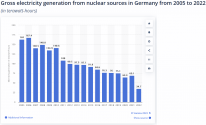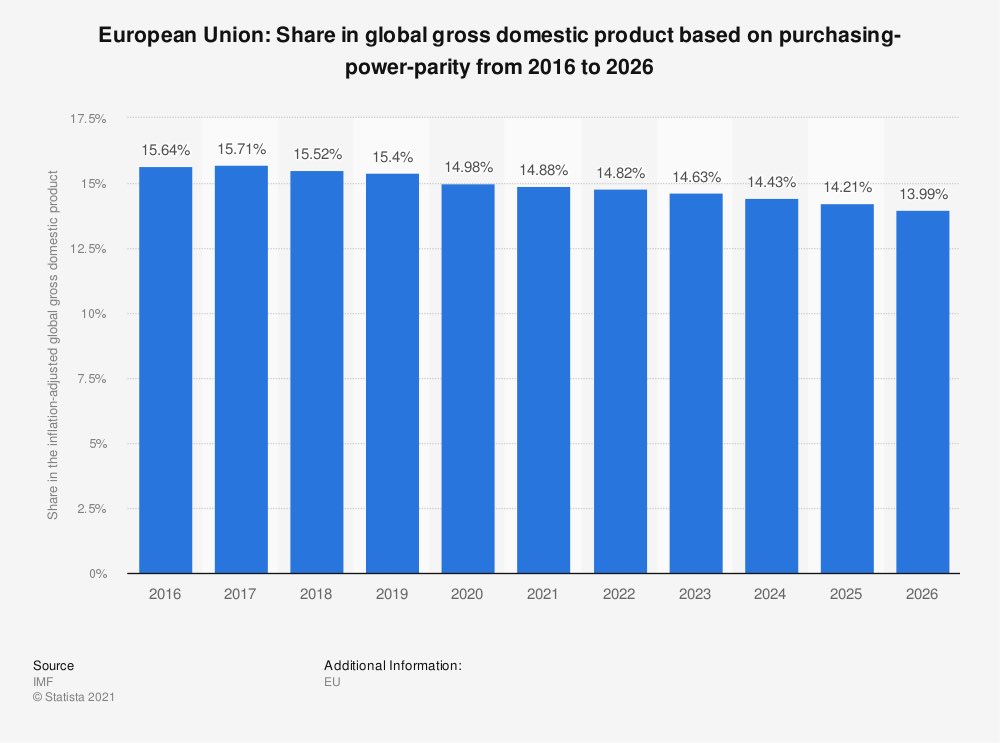You are using an out of date browser. It may not display this or other websites correctly.
You should upgrade or use an alternative browser.
You should upgrade or use an alternative browser.
European Economics Thread
- Thread starter PiSigma
- Start date
As the credit agency Creditreform reported at the beginning of December, there were 18,100 corporate bankruptcies this year. This is an increase of 23.5% compared to the previous year. The number of bankruptcies rose by 20.8% in the construction industry, by 22.5% in the services sector, by 26% in trade and by as much as 30.2% in the manufacturing sector.
The German construction industry is on its knees
Der Spiegel wrote about this under the headline :Between the massive increase in construction material costs and the rising interest rates there is little wonder construction is collapsing in Germany. The cost of glass, brick, and rebar rose substantially because of the higher energy costs. After the EU stopped buying energy from Russia. Because of inflation caused by massive COVID-19 subsidy money printing and higher energy prices they also had to hike interest rates.
If you want to see some ridiculous propaganda here it is:
Trying to convince Germans that stopping German trade with China would only have a minimal impact to the German economy. From the same institute which claimed stopping trade with Russia wouldn't harm German GDP.
This reminds me of the British thinking they wouldn't have issues banning purchasing gas from Russia Europe wide. Because they were getting their gas from the Netherlands. Which they didn't bother to check out was getting its gas from Russia.
If you want to see some ridiculous propaganda here it is:
Trying to convince Germans that stopping German trade with China would only have a minimal impact to the German economy. From the same institute which claimed stopping trade with Russia wouldn't harm German GDP.
This reminds me of the British thinking they wouldn't have issues banning purchasing gas from Russia Europe wide. Because they were getting their gas from the Netherlands. Which they didn't bother to check out was getting its gas from Russia.
Last edited:
This is kind of interesting just to see how much Russian conflict has hurt Europe's fertilizer industry and food security.

As expected, the relentless march towards a cleaner grid continues. Those who claimed the Energiwende just increased coal usage were dead wrong. The transition should have happened much sooner, which would have avoided the current mess where Germany is overly reliant on imported energy and pays a heavy price due to the war.
Heating also needs to change and there is a lot of action in changing out natural gas for heatpumps. How fast it happens will obviously differ on government policy.
Those mistakes were decades in the making and the price of inaction is being paid now. The dividends of weaning off Germany from imported and dirty energy will only be felt years from now. But it will happen.
Germany used to generate more electricity in 2006 with nuclear than they now generate with wind (both onshore and offshore). And the nuclear power plants can operate during the whole day and regardless of weather. The nuclear power wasn't imported dirty energy either.
Yet they closed down the nuclear power plants which could have operated for another 20 years with proper maintenance and refurbishment.

This is without accounting for the closure of the nuclear power plants in East Germany like the ones at Greifswald. They were newer than the ones that the Russians still operate at the Kola peninsula today which aren't expected to shut down until 2033.
All I see is a massive destruction of capital to get some political brownie points.
Yet they closed down the nuclear power plants which could have operated for another 20 years with proper maintenance and refurbishment.

This is without accounting for the closure of the nuclear power plants in East Germany like the ones at Greifswald. They were newer than the ones that the Russians still operate at the Kola peninsula today which aren't expected to shut down until 2033.
All I see is a massive destruction of capital to get some political brownie points.
DW
International Affairs
Meat, cheese and confectionery are among the items being stolen in large quantities from shops and lorries in order to be sold to people hit by the cost of living crisis.
With food prices rising, figures in policing, retail and academia said action was needed to stop people exploiting the rising demand for stolen food.
Retailers are reporting a record year for shoplifting, costing the industry £1bn this year, according to the British Retail Consortium’s estimate. Home Office data shows the crime has reached the highest level since records began, while the proportion of shoplifting incidents that resulted in a charge has fallen.
Andrew Goodacre, the chief executive of the British Independent Retailers Association said the cost of living crisis had made people “think of alternative ways of sourcing items that are essential to them”. He said shops that had not faced shoplifting in the past were reporting thieves clear whole shelves in seconds.
“I think that’s because the black market has got so much bigger,” he said.
International Affairs
Meat, cheese and confectionery are among the items being stolen in large quantities from shops and lorries in order to be sold to people hit by the cost of living crisis.
With food prices rising, figures in policing, retail and academia said action was needed to stop people exploiting the rising demand for stolen food.
Retailers are reporting a record year for shoplifting, costing the industry £1bn this year, according to the British Retail Consortium’s estimate. Home Office data shows the crime has reached the highest level since records began, while the proportion of shoplifting incidents that resulted in a charge has fallen.
Andrew Goodacre, the chief executive of the British Independent Retailers Association said the cost of living crisis had made people “think of alternative ways of sourcing items that are essential to them”. He said shops that had not faced shoplifting in the past were reporting thieves clear whole shelves in seconds.
“I think that’s because the black market has got so much bigger,” he said.

